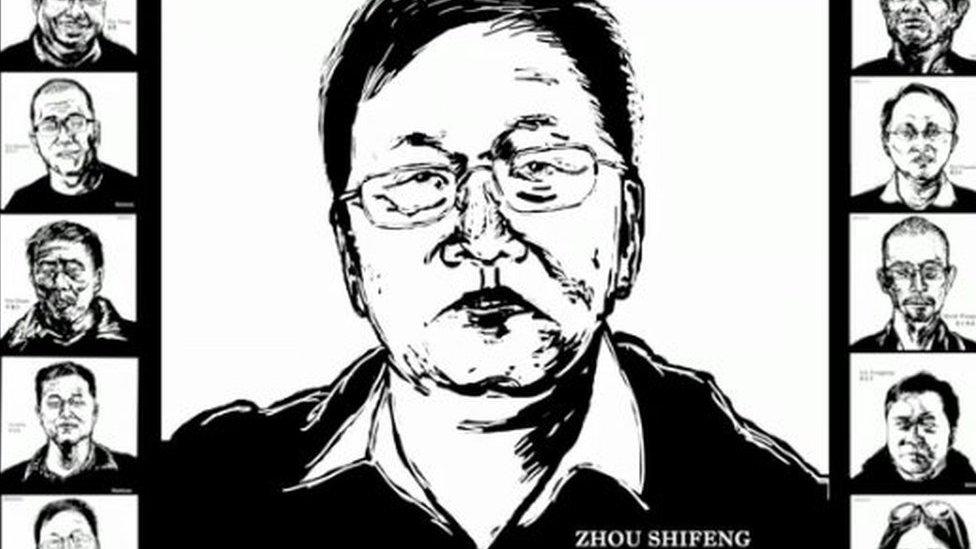China show trials: Victory for politics of fear in Tianjin?
- Published
- comments
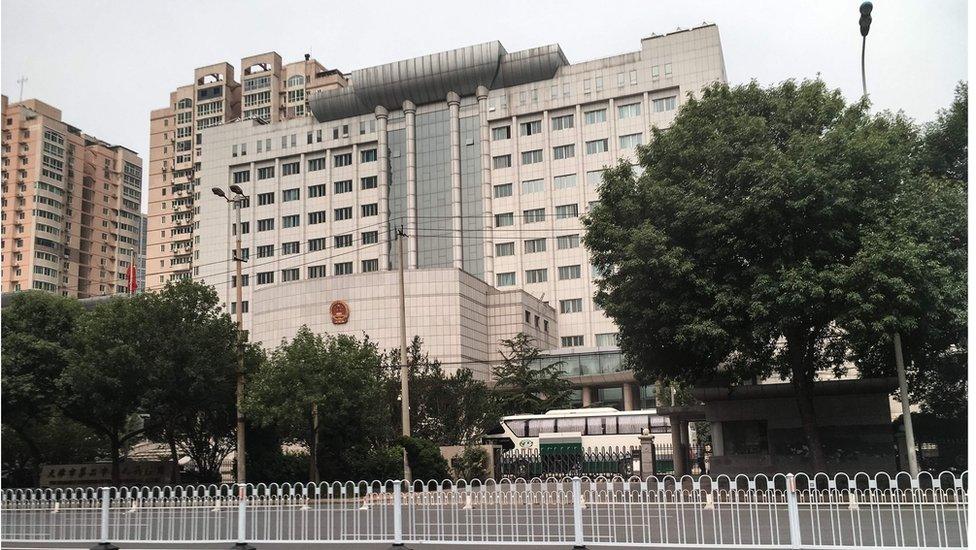
China's constitution, in theory, grants its citizens legal protections
History is littered with tragedies in which individuals or nations betray their long-term interests for short-term advantage. This week's show trials in China may be just such a case.
In a world full of danger and drama, the Tianjin trials have won little attention at home or abroad.
Only China watchers and human rights campaigners freeze to attention as a mighty country, one which says it is ruled by law, holds a group of lawyers for a year without access to family or representation, and then convicts them in trials unworthy of a great nation.
Don't imagine I'm writing an attack on China. I've lived here on-and-off for three decades and I pay tribute to China's many immense achievements since then. But this week's Tianjin trials have been a charade unworthy of a great civilisation and are surely not in China's long term interest.
They deserve the attention of Chinese citizens and the world.
With many of the bravest and most defiant in China's legal community now humiliated, cowed, discredited and jailed, who will represent the child poisoned by toxic milk powder, the ethnic minority academic accused of separatism, the feminist protesting sexual harassment or the citizen maimed by unaccountable thugs?
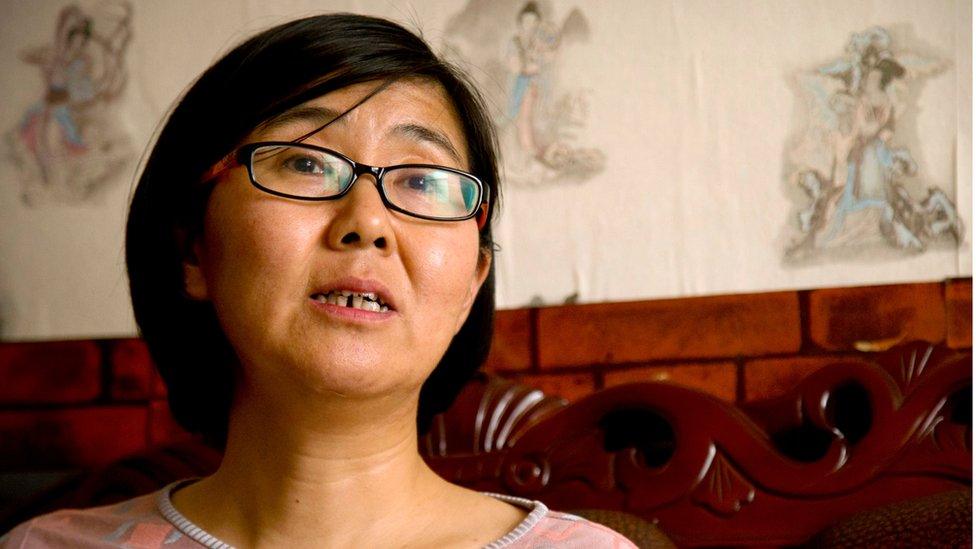
The whereabouts of Wang Yu are still unclear
First came Monday's "release" of lawyer Wang Yu. "I felt the civility and humanity of justice in China," said this one time fiery defender of the downtrodden, as she admitted conspiring against her country, expressed shame and remorse for meeting foreign journalists in the past and rejected an international prize for her legal work.
But what kind of release is it when the prisoner emerges, not into the arms of family, friends and defence lawyer, but only to read a statement to journalists under Beijing's control.
Wang Yu may have said all these things freely. It's possible. But until she is free in the non-Orwell use of the word free, we cannot know.
And so it went on all week.
On Tuesday, activist Zhai Yanmin admitted fomenting "colour revolution", repented and won a suspended sentence. On Wednesday, Hu Shigen admitted trying to overthrow the Communist Party but was still sentenced to seven years in prison.
On Thursday, the head of the law firm at the heart of the case, Zhou Shifeng, also got seven years. And lastly, on Friday, a subversion conviction for Christian activist Guo Hongguo to complete the Party's picture of a traitors gallery in thrall to hostile foreign forces.
Yuan Shanshan, wife of human rights lawyer Xie Yanyi, has not seen her husband for a year
For the Chinese government these show trials serve two objectives. The first is to intimidate China's human rights community with an unmistakable message that the Party will crush those who dare to put the law above the political interests of the Party.
The second objective is to paint anyone who has an alternative vision of China's future as part of an American-driven conspiracy.
This assault meant to smack down China has been going on for years, warns a film published this week by the Communist Youth League, accompanied by sequences of American diplomats outside the Tianjin courthouse.
Another film from the Supreme People's Procuratorate cuts between images of the American flag, the Syrian civil war and Hong Kong democracy activist Joshua Wong, painting the latter as an independence activist backed by the United States, which itself is trying to turn China into another Syria.
Agents of these Western forces are damaging China's internal stability and harmony by hook or by crook. Behind all these incidents we can often catch a glimpse of the dark shadow of the Stars and Stripes.
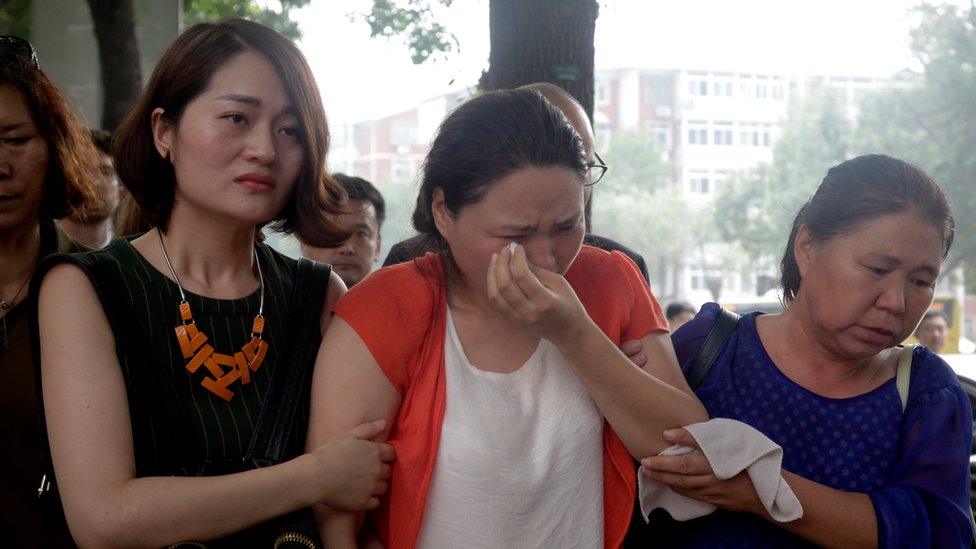
Gou Hongguo's wife (centre) and the wife of imprisoned lawyer Wang Quanzhang (left) protested outside court on 1 August
It's an argument which helps the Party wrap itself in a tight embrace with the public, warmed by the Chinese national flag and indignation against foreign aggressors who humiliated China two centuries ago and would do so again now if it weren't for the ever vigilant Party. Many Chinese citizens do actually believe this narrative.
But whatever the short term advantage in securing a loyal public and drilling a docile legal fraternity, the long term cost is too high.
The lawyers in the Tianjin dock this week were not conspirators for a foreign power. They were committed public servants assisting the most downtrodden in their society.
The lawyers' relatives and foreign journalists have been kept well away from the court, as John Sudworth reports
Some may have pushed harder than the Party could tolerate, inside and outside the courtroom, but if that was their offence, the Party should say exactly that. Instead it has pretended that this is a triumph of justice, insisting that the trials are fair, the confessions freely given and the entire charade open to international media.
None of this is true and the brazen cynicism of it all would be funny if it was not so frightening.
China does many things well and some things less well. The question is which things are important to its people, whether those change over time and whether the system can adjust to provide more of them.
In the long run, I believe constitutional rights will matter in China. It is an insult to intelligence and cannot be in China's long term interest to paint citizens who dare to discuss these rights as agents of the United States. It is also profoundly unethical.
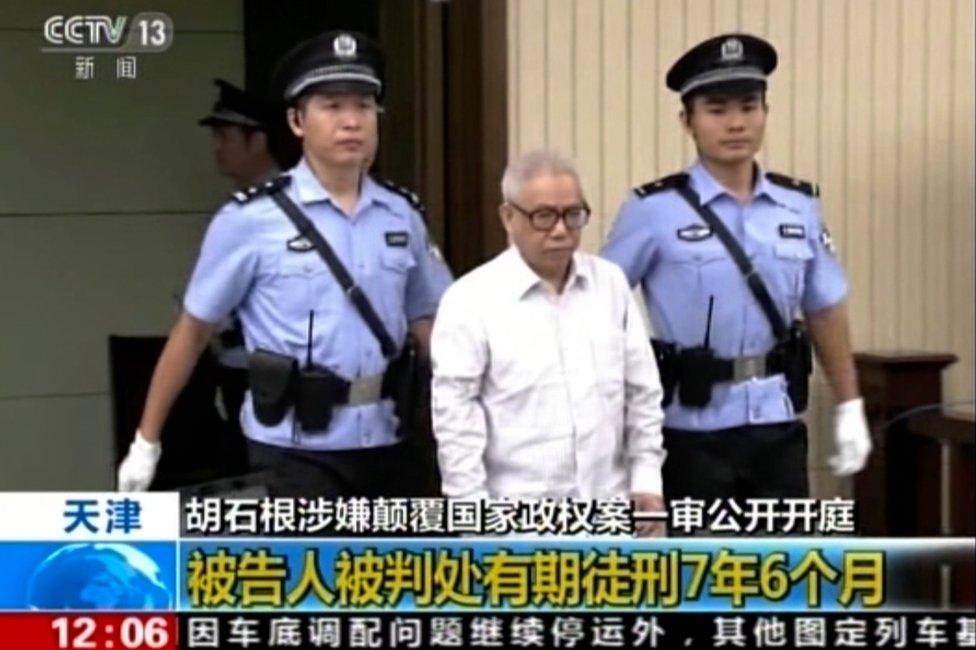
Sometimes the elaborate confessions win the confessors their freedom, but Hu Shigen got seven years in jail for admitting subversion
Sharpening the ideological conflict with the US is surely questionable on strategic grounds too. It is indeed part of US foreign policy to promote democracy, but the irony is that in China the US has not really tried very hard.
Instead successive American administrations have invited China to rejoin the international community and benefit from globalisation, while accepting that it does so on its own domestic political terms.
As China's economic and military might rise to rival that of the US, there are a growing number of Americans who complain that they have nurtured a dangerous strategic rival which shares none of their values. Painting Washington as the enemy only feeds this fear, inflaming nationalism and suspicion on both sides.
I'd ask the Tianjin prosecutors, if American NGOs are part of a US government conspiracy, what are the Chinese players abroad, who fund video messages displayed in New York's Time Square, the teaching of Chinese culture in Confucius Institutes or any number of other Chinese soft power projects?
In these frightening times, which of us knows what challenges are around the corner?
First and foremost for the dignity and protection of its own citizens, but also for the sake of China's future and that of the world at large, a responsible Beijing would celebrate those who work for society's most vulnerable and talk down the ideological enmity with the West rather than talk it up.
- Published4 August 2016
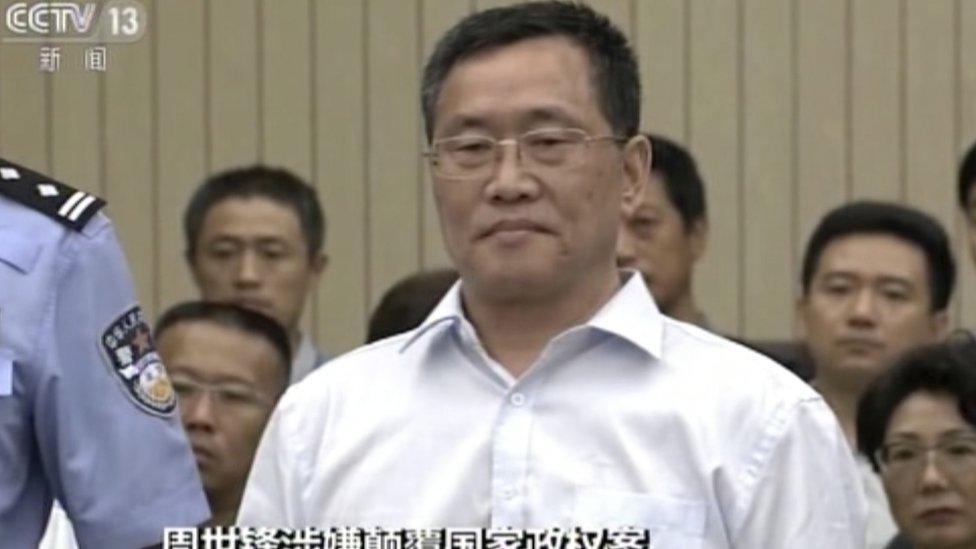
- Published3 August 2016
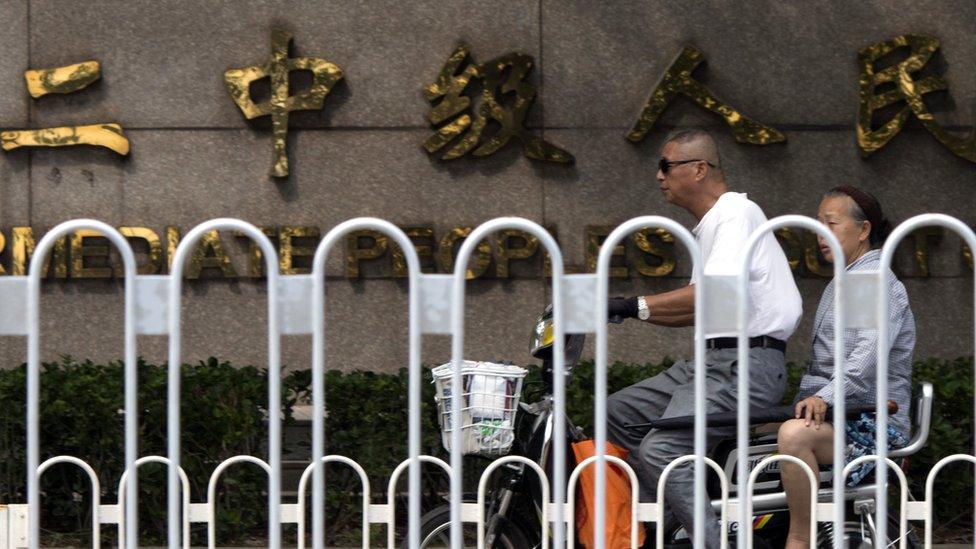
- Published2 August 2016
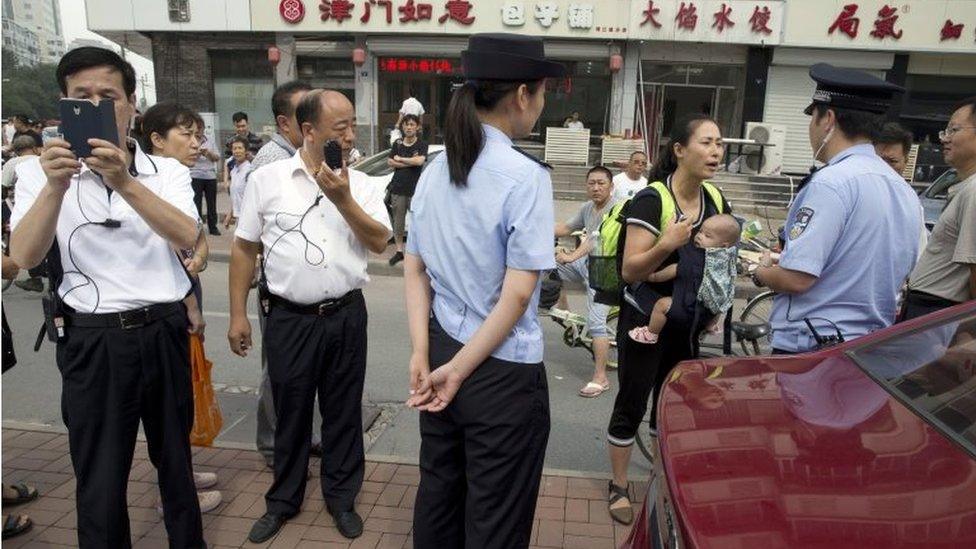
- Published13 July 2015
- Published14 June 2016
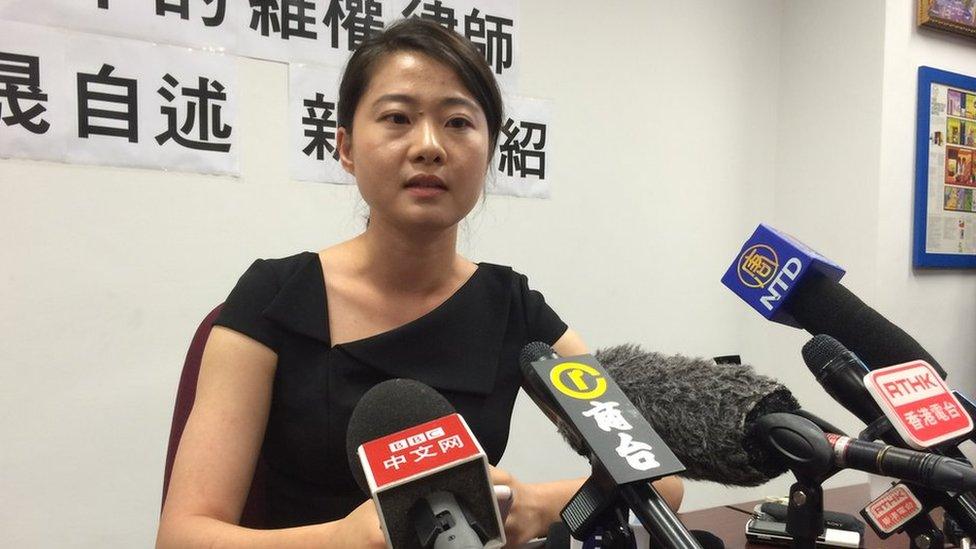
- Published4 July 2016
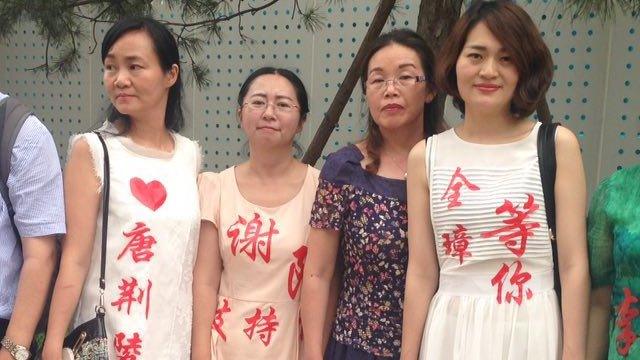
- Published12 January 2016
